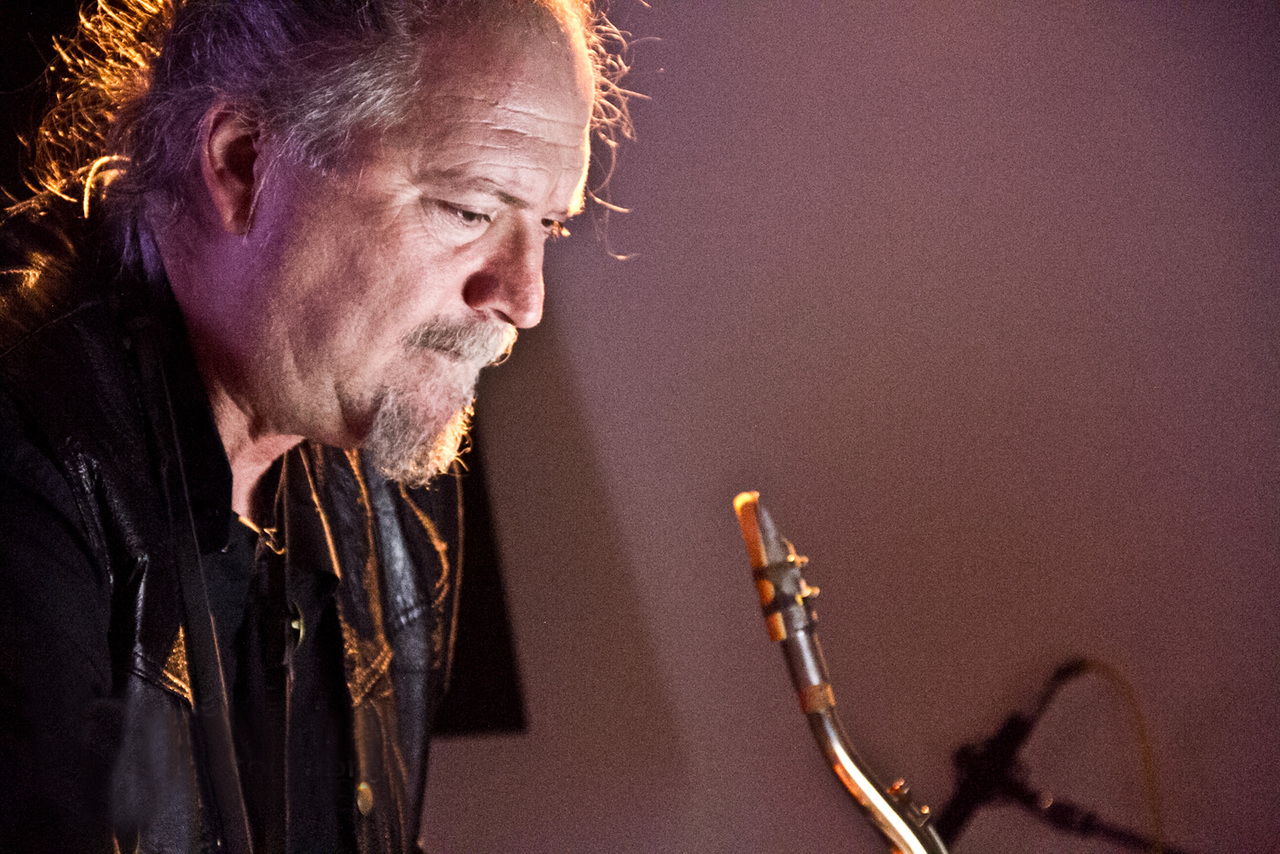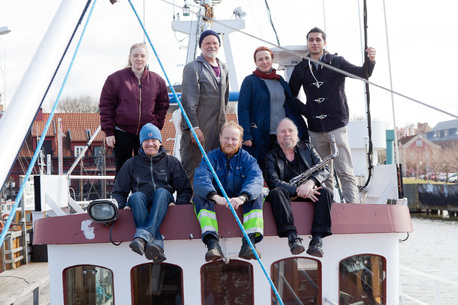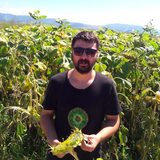Like when you make the same album more than once…
DF: But it’s also difficult, because you have done so much music, and you want to make something new. So, for example, this concept of today’s concert (e.n. –
Konfrontationen 2015) I decided I will not decide what I will start with. I wanted to go in a state somehow to start. And when I played the solo alto, I didn’t know I would play the solo alto. And this felt very good, because suddenly I was confronted with the situation that I was not prepared. And this forced me to deal with this. I like to do things. I constructed a specially computer program that has (I would not say randomness) but some unpredictability.
An element of unpredictability.
DF: A lot of elements. For example, if the program detects that I play 93 times on 440 Hz, something happens. Of course, I don’t count how many times. And then, the computer suddenly does something. If you saw, I have a synthesizer with touch control, that I can change all the time. This one was built in 1975. And this gives you the possibility to really improvise with electronic sounds, without having to look at the computer; it’s like playing an instrument. This is what I want to do; I want the electronics and so on to be a part of my… like playing saxophone, you don’t have to think too much, you don’t have too much programming; because as soon as you start looking at the computer and changing volume, your mind will change from the creative musician to a technocrat. Sometimes you must do that, but sometimes I would prefer if there could be a human interference.
Regarding the solo you were talking about earlier, was that a composition or improvisation? It also sounded a bit ethnic.
DF: Yes, it had ethnic elements. I made the research in musicology about Jewish prayers tradition. And I made a CD with my group Lokomotiv Konkrete, called
A Voice Still Heard. And the melody is on this tradition, and we improvised on that. I have this in my body. When I was a little boy, I heard it on the radio; every Friday there was a program on Israeli radio where they were singing old prayers. Somehow, I like it very much, although I come from a total secular non-religious world. I like the sadness.
Does sadness inspire you more than happiness?
DF: I think sadness is a bigger part of me than happiness. If you look at the world now, at what’s happening, how much happiness can you get from that?
And the happiness is much shorter.
DF: Haha, it’s true. If you look at the history of art, if you look for
Hieronymus Bosch, his paintings of hell are much better than his paintings of paradise. We, as human beings, know what hell is. But paradise…we don’t know. We hope we know, but we don’t. So I think it has something to do with sadness too.
In Swedish there’s this word called
dravant. You can say somebody is dravant by sickness, or by music. It means…you don’t choose. I don’t choose to be sick, but the sickness is taking me. The same thing I want music to take me. So when I play, suddenly, I don’t know why I do this. It is taking over me. I become possessed. I like it, I like this feeling, and it is a little bit childish and idealistic.
Nobody is idealistic anymore.
DF: No, I mean idealistic in a philosophical term. You come from Romania; you know the difference between the elected materialism and idealism.
We were only 4 or 5 years old at the Revolution.
DF: My father was the chairman of communist party in Israel.
DR: You know, my parents lived around Jerusalem for 4 or 5 years. They worked there. I remember a story from my mother. One day, as she was waiting for the bus in the station, together with a friend of her, and while chatting together, my mother decided to take the next bus and not the one that just arrived in the station. And 20 minutes later, that bus exploded nearby a market, with all the people on board.
DF: Between 2002 and 2007 was the worst. But I can’t go to Israel again, I am exiled politically.




